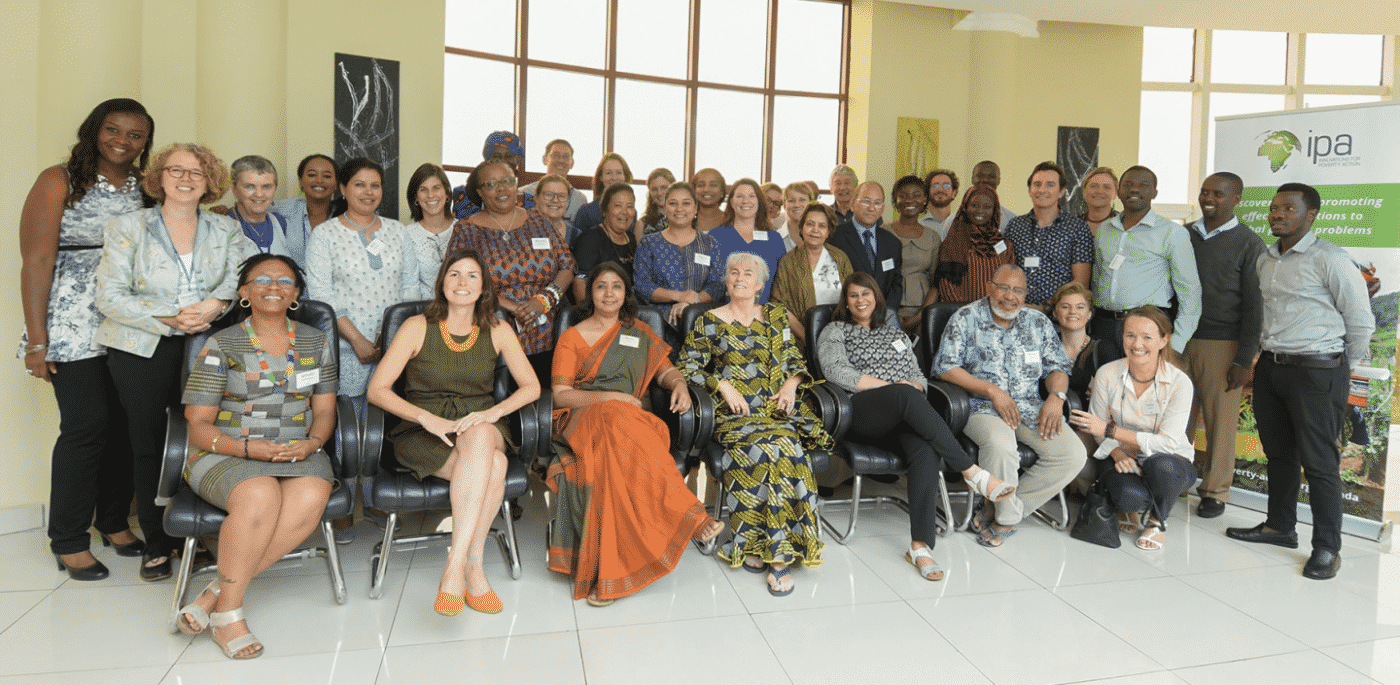Currently, nearly 2.7 billion people still lack access to clean cooking facilities and 1 billion people live without access to electricity. Closing this gap and achieving the Sustainable Development Goals (SDGs) is one of the major challenges of our times, and it requires efforts from public and private sector to create an enabling environment for access to, delivery and supply of clean energy.
To extend the knowledge base and collect data that policy and decision makers need to advance national and global agendas for a more gender-inclusive energy sector, ENERGIA developed its Research Programme. Started in 2014, seven research consortia that include universities, research institutions, NGOs and private companies conduct research in different areas on the intersection of gender and energy.
Ahead of the final research reports’ launch in December, which will provide policy makers and practitioners in the energy sector with key findings and recommendations, ENERGIA held its annual programme meeting of the Gender and Energy Research programme last week in Rwanda, together with all the consortium partners. The main objective of the final programme meeting was to share and reflect on the research findings coming out of each of the seven research projects. The meeting provided an opportunity for extensive discussion on the findings coming out of each research project, with the main objectives of identifying new and exciting findings, looking for linkages and cross-cutting issues between the projects and possible gaps and research areas for future research.
Rwanda: A key partner to build a gender-responsive energy sector
Rwanda has been a key contributor in enhancing the gender responsiveness of the energy sector, and has now committed itself to boost electricity access in rural areas, where there are still many households far away from the grid. Providing communities with off-grid solutions, such as LED lights, and involving women in micro-enterprise businesses can both serve to address gender equality concerns in the energy sector and to close the energy gap.
With these developments in mind, the Environmental Economics Policy Research Unit (EPRU) of the University of Cape Town and Innovations for Poverty Action (IPA), Rwanda-office are partnering with Nuru Energy, an international social enterprise, to conduct a study as part of the ENERGIA Gender and Energy Research programme (RA5). This study aims to provide insights on how gender inequalities can be addressed by bringing women to the forefront in the establishment of NURU village-level enterprises (VLEs) and how this impacts the well-being of the entrepreneurs, their households and the wider community. Nuru Energy serves off-grid rural communities by distributing LED lights and charging stations through Village Level Enterprises, such as the one composed by Bernadette, Virginie and Brigitte operating in the Rulindo district.
In the same way, the University of Twente in partnership with MARGE in Rwanda, explored the impacts of modern energy services on street food enterprises (RA2), examining links between energy use and the formalization of these businesses as well as the role that energy could play in empowering women at the household level. This study was also conducted in Senegal, together with ENDA Tiers Monde and in South Africa with the University of Cape Town. The final study pulls out a set of policy recommendations to support a gender-approach which will contribute to a broader processes of development of the sector.
Impacts of the street food sector development and of gendered micro-enterprise business models to women’s empowerment
The two research teams hosted a workshop in Kigali, bringing together policy makers, non-governmental organizations, practitioners and researchers with expertise in the energy sector. During the workshop the findings from Research Project 5, on the impacts of gendered micro-enterprise business models to women’s empowerment and Research Project 2 on impacts of access to energy services on the development of women’s enterprises in the street food sector, were shared.
Considering women’s entrepreneurship, its sustainability and scalability, the researchers emphasized the need for subsidy, especially for the up-front costs of the LED lights and combining this with a free trial for charging to help low-income households to get access. It should be pointed out that the local entrepreneurs often lack the skills to be able to fix the lights if they no longer function, so there is a need for proper business development support including technical training.
When looking at the street food sector, Rwanda has made a lot of efforts towards formalization of street food sellers, especially compared to the other countries included in the research (Senegal and South Africa). There are many market places where small sellers can set up their businesses and registration with the local authorities was simplified. Compared to the other countries, Rwanda is still heavily reliant on charcoal for cooking, in households as well as within the food sector. The government is planning a ban over the course of the coming three years, but the participants emphasised the need for an alternative as this might impact low-income households, since gas is still expensive. The Government is exploring other clean cooking solutions, such as improved cookstoves (ICS), which offer a valid alternative for rural communities. In the final report of this research, the recommendations focused on Rwanda will be able to support such political decisions, and ensure that action is taken towards a more sustainable future for this country.
In the coming months, ENERGIA and its partners will share more findings and a synthesis report from the Research Programme to provide policy and decision makers with a clear roadmap of urgent actions needed for sustainable development.











Follow us on: